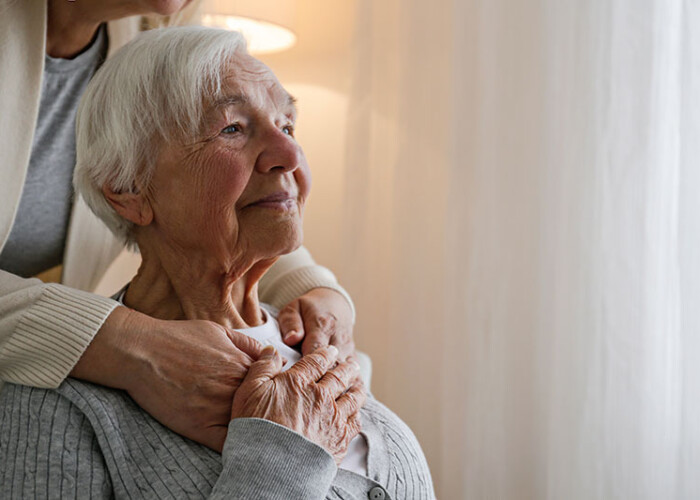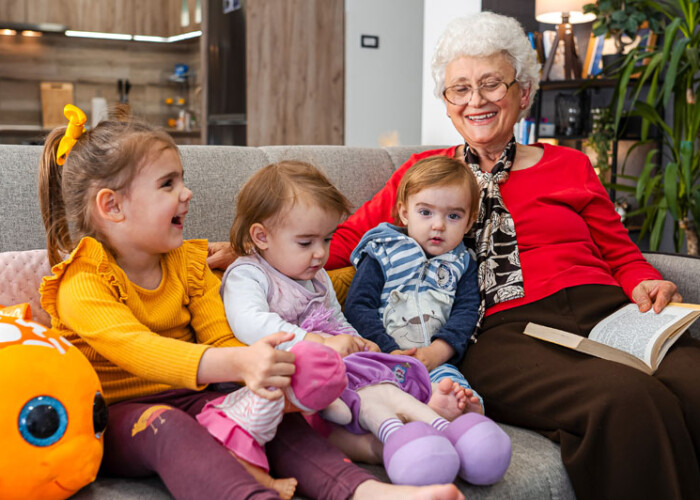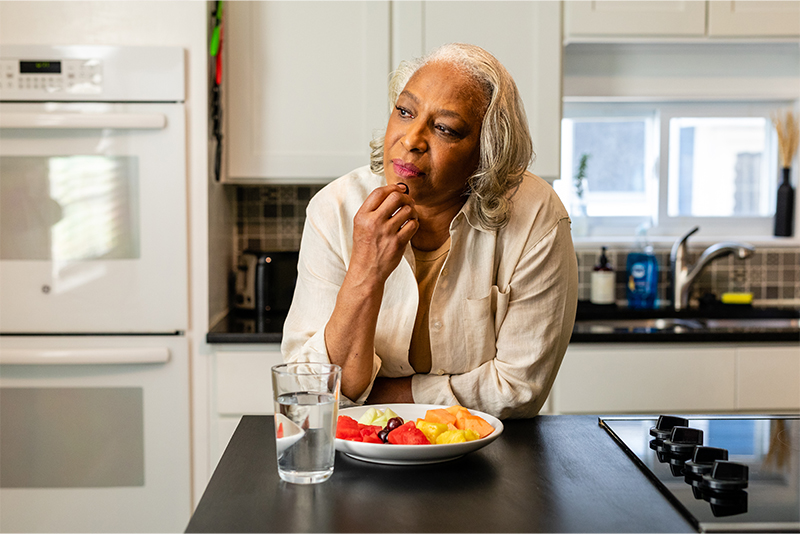Senior Mental Health
Why You May Be Noticing an Accelerated Progression of Alzheimer’s
If you’re noticing a more rapid progression of Alzheimer’s lately in someone you love, there are several reasons you’ll want to explore.
Wouldn’t it be wonderful if there were a detailed Alzheimer’s care manual, complete with step-by-step instructions and insights into what to expect at every stage? While there are general patterns in the progression of Alzheimer’s, the disease unfolds uniquely for each person. This unpredictability can make caregiving especially challenging, as you never quite know what the next day—or even the next hour—might bring.
What Is Senior Social Frailty and Who Is at Risk?
It’s easy for older adults to slip into spending too much time alone, which can lead to senior social frailty.
Not so long ago, we were all taking precautions to protect ourselves and loved ones from the spread of COVID-19. For older adults, who were especially vulnerable, this meant isolating at home and avoiding social interactions. While these measures were necessary for safety, they created a new norm of solitary living for many seniors—one that has persisted long after the height of the pandemic and is causing a condition known as senior social frailty.
Recognizing and Resolving Senior Anxiety
If you suspect senior anxiety in someone you love, help is available.
Does an older adult you care about seem more withdrawn, restless, or forgetful than usual? While these changes may appear to be part of aging, they might actually indicate something deeper: senior anxiety.
Anxiety is more than just occasional worry or stress. In older adults, it can manifest in subtle or unexpected ways, including:
Persistent, obsessive thoughts
Recurrent nightmares that disrupt sleep
Repetitive behaviors, like checking and re-checking that appliances are off
Physical symptoms, such as sweating, dizziness, or a racing heart
Overreactions to otherwise manageable stressors
What Contributes to Anxiety in Aging Adults?
Aging brings unique challenges that may contribute to anxiety, including:
Side effects from medications
Chronic illnesses or reduced mobility
Grieving the loss of a loved one
Concerns about declining independence or financial stability
Unresolved childhood trauma
These factors, combined with changes in … Read More »
Six Rs to Improve Dementia Care
Use these six essential tips to improve dementia care for someone you love.
Caring for someone with dementia is one of the most meaningful yet challenging roles you can take on. It’s important to remind yourself regularly: You are doing your best. You are making a difference. A little self-affirmation goes a long way, but there’s more to consider when caregiving gets tough. Enter the Six Rs of dementia care—a framework designed to help improve dementia care and better manage the complexities of the disease.
What Are the Six Rs of Dementia Care?
The Six Rs offer a practical, compassionate approach to navigating difficult dementia-related behaviors. By following these steps, you can create a more peaceful, supportive environment:
Reassure
Dementia can make familiar routines and environments suddenly feel intimidating or strange. Loud noises, changes in lighting, unfamiliar visitors, or even … Read More »
How to Be There for a Senior During a Temporary Assisted Living Stay
A temporary assisted living stay can be less overwhelming and more comfortable with these tips.
After a hospitalization or surgical procedure, the doctor may recommend a temporary assisted living stay before the person returns home. This is typically a short-term time of intensive therapy to promote healing and recovery. However, the thought of moving into a nursing home or assisted living facility even for a matter of weeks or months can be extremely difficult to accept.
The Life-Changing Benefits of Purposeful Living for Seniors
Purposeful living for seniors opens new doors to health, happiness, and fulfillment each day.
What exactly is it that gets you out of bed every day? If you’re part of the sandwich generation, providing care for both older and younger loved ones, your list is probably quite extensive! As the nest empties, however, it becomes important to redefine our identity and learn new ways to bring meaning to every day.
Celebrating our Veterans
On Monday, November 11, we stand together to provide sincere honor and appreciation to the courageous men and women you have given so much for our safety and freedom. We thank you for your courage, dedication, and hard work. And to the families of our Veterans, we thank you for all of your support, resilience, and sacrifice. It is our honor to be able to provide exceptional service and support to the Veterans and their families in our community.
Sincerely,
~The HIRED HANDS HOMECARE Team
The Emotional Journey of End-of-Life Eating Changes
When a loved one is approaching the end of life, every moment becomes even more meaningful, but it can also be a time of great emotional difficulty. One of the changes you may notice is their decreasing interest in food and drink, which can be especially distressing. Watching someone you care about stop eating can leave you feeling worried, helpless, and unsure of how to help. However, understanding why these end-of-life eating changes happen and focusing on providing comfort rather than nourishment can ease this challenging time for both you and the person you love. The goal shifts from ensuring they eat to making sure they are comfortable and at peace.
Why Eating Changes Occur at the End of Life
As a person’s body prepares for the end of life, their need for food and drink diminishes. Metabolism slows, … Read More »
What You Need to Know About End-of-Life Dementia Care
Caring for a loved one as they near the end of life is an incredibly personal journey. When Alzheimer’s disease is part of this experience, the path can become even more intricate. Unlike many other terminal illnesses, dementia progresses in unpredictable ways, requiring us to adjust our approach to end-of-life dementia care.
Identifying End-of-Life Signs in Dementia
In many diseases, the end-of-life stage is marked by noticeable changes in areas such as eating, sleeping, and socializing, often appearing two to four months before death. However, with Alzheimer’s disease, these indicators can emerge much earlier, sometimes even years in advance. These are the key signs to watch for:
Extended Sleep Patterns: Long periods of sleep can occur well before the final stages of life in someone with dementia. While this may be an early sign, it can also continue over a … Read More »
The Importance of a Daily Routine for Someone With Dementia
Have you ever woken up from a dream feeling completely disoriented? The dream seemed so real, and it takes a moment to regain your bearings. For someone with dementia, this disorientation is a part of everyday life. One highly effective way to help is to provide as much stability as possible, and one of the best ways to accomplish this is by sticking to a daily routine for someone with dementia.
How Can a Routine Help Someone With Dementia?
Short-term memory loss makes it challenging for someone with Alzheimer’s to learn and remember new things. A familiar routine helps build self-confidence, reinforce a sense of independence, and reduce anxiety.
To establish the most comfortable routine for a loved one with Alzheimer’s disease, try the following:
Follow their lead. Retain any routines the person already has built: a morning shower before … Read More »

















